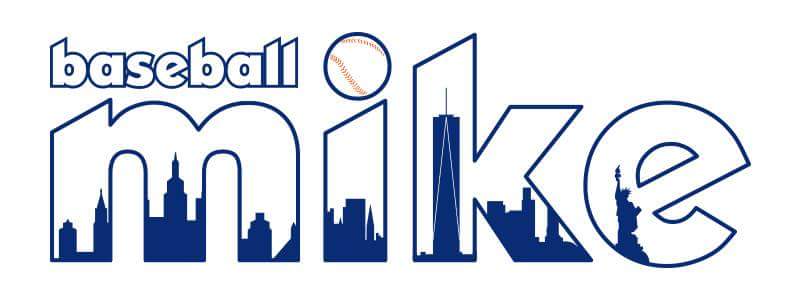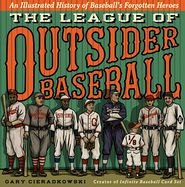1981
As part of
my thought process, and re-examining some awards that may have gone to the
wrong players, I went back to the 1981 season.
It was a
tumultuous season to say the least. Those who are old enough to remember it as
the 'strike season', which was halted in mid year, and started up again. The
season was played in two halves, with the standings frozen at the time of the
work stoppage, and the first place teams were dubbed the First Half pennant
winners. The resumption of play then led to the awarding of Second Half pennant
winners.
The
Cincinnati Reds, that year, had the misfortune of winding up with the best
overall record in baseball, but didn't win either of the pennants, and were shut
out of post-season play.
The
Dodgers, who eventually beat the Yankees in the World Series, were the team
everyone was watching. Led by a left-handed Mexican rookie pitcher named
Fernando Valenzuela. He was the hottest ticket in baseball, and drew record
crowds whenever and wherever he pitched. The nation was consumed by
Fernando-mania.
He was
awarded the Rookie of the Year AND the Cy Young Award for the National League
that season.
I have no
qualms about the Rookie of the Year. The Cy Young Award, however, is a
different story.
In looking
at the pitcher who received votes for the Cy Young (only 5!) we have the
following:
Name
|
W
|
L
|
Sv
|
ERA
|
F.
Valenzuela
|
13
|
7
|
0
|
2.48
|
T. Seaver
|
14
|
2
|
0
|
2.54
|
13
|
4
|
0
|
2.42
|
|
N. Ryan
|
11
|
5
|
0
|
1.69
|
B. Sutter
|
3
|
5
|
25
|
2.62
|
(note: 4
Hall of Famers + Fernando)
Just for
kicks, I added the leaders in ERA (Earned Run Average) and
WAR (Wins Against Replacement, the hot stat amongst
Sabermetricians)
Name
|
W
|
L
|
Sv
|
ERA
|
J. Reuss
|
10
|
4
|
0
|
2.30
|
B. Knepper
|
9
|
5
|
0
|
2.18
|
D.
Alexander
|
11
|
7
|
0
|
2.89
|
B. Hooton
|
11
|
6
|
0
|
2.28
|
V. Blue
|
8
|
6
|
0
|
2.45
|
R. Camp
|
9
|
3
|
17
|
1.78
|
E.
Solomon
|
8
|
6
|
1
|
3.12
|
B.
Gullickson
|
7
|
9
|
0
|
2.80
|
Good to see
Rick Camp on the list. He was a pretty good closer (or stopper as they began
calling them in his day) . To me, however, he will always be the guy that
homered at 3AM against the Mets in Atlanta
in July of 1985.
Anyway, as
I was thinking...being a Mets fan, I always maintained that Tom Seaver really
should have won his fourth Cy Young Award in 1981, but he didn't...nor did he
deserve it.
As happens
with statistics and research, sometimes one is able to use numbers as a way to
end an argument, or solve a problem. And sometimes, like layers of an onion,
you delve in deeper and deeper and discover something else entirely. Or have to
switch gears.
Using my
formula, I applied that aforementioned
players' statistics and calculated the number. Then, lo and behold, I was
wrong. Here are the results:
name
|
x
|
Nolan
Ryan
|
2.03571
|
Tom
Seaver
|
1.97817
|
Steve
Carlton
|
1.85987
|
Fernando
Valenzuela
|
1.82966
|
Burt
Hooton
|
1.80910
|
Rick Camp
|
1.77259
|
Jerry
Reuss
|
1.77258
|
Bob
Knepper
|
1.74199
|
Don
Sutton
|
1.73851
|
Then, when you compare that x number to the rest of their
teams, we get this:
name
|
Vs. TEAM
|
Steve
Carlton
|
1.8399
|
Tom
Seaver
|
1.6687
|
Rick Camp
|
1.6523
|
Nolan
Ryan
|
1.3918
|
Vida Blue
|
1.3813
|
Eddie
Solomon
|
1.3252
|
Fernando
Valenzuela
|
1.3312
|
Burt
Hooton
|
1.3163
|
Jerry
Reuss
|
1.2897
|
Doyle
Alexander
|
1.2808
|
Bob
Knepper
|
1.1910
|
Don
Sutton
|
1.1889
|
Bruce
Sutter
|
1.1602
|
Now, let's compare to the rest of the league...
name
|
Vs NL
|
Nolan
Ryan
|
1.8834
|
Tom
Seaver
|
1.7819
|
Steve
Carlton
|
1.6753
|
Fernando
Valenzuela
|
1.6481
|
Burt
Hooton
|
1.6296
|
Rick Camp
|
1.59671
|
Jerry
Reuss
|
1.59670
|
Bob
Knepper
|
1.5692
|
Don
Sutton
|
1.5660
|
Vida Blue
|
1.5147
|
Doyle
Alexander
|
1.4026
|
Ryan was on
a very strong pitching team, as proven by 3 pitchers on this top ten list, but
that being said, he was still the strongest performer on the staff.
So, in
conclusion, it appears that Fernando was not totally deserving of the Cy Young
Award in 1981. In reality, it should have been The Ryan Express's first Cy
Young.

